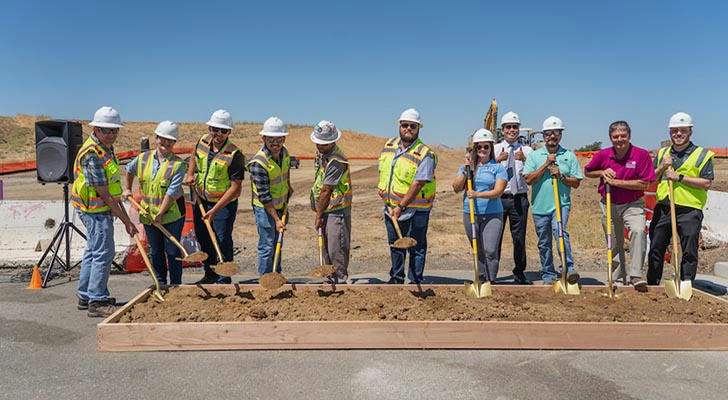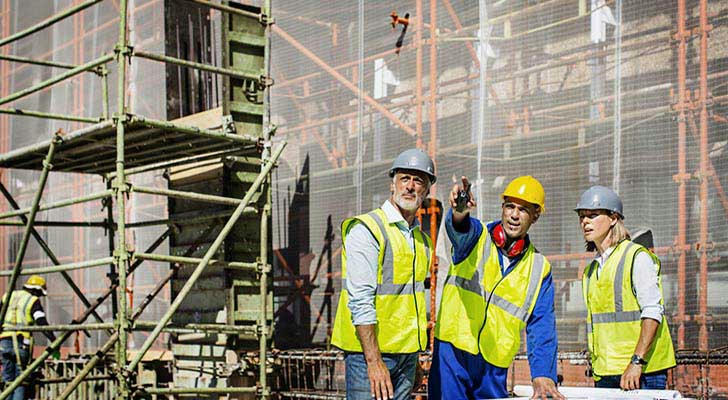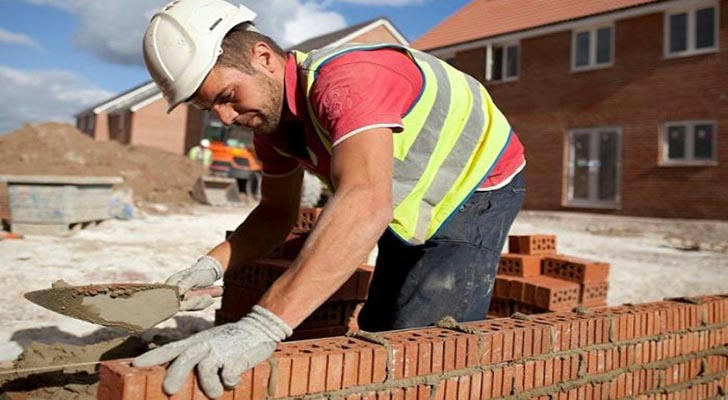Construction workers: an important force in the US economic construction
With the acceleration of urbanization and the continuous advancement of infrastructure construction, the demand for construction workers continues to grow. This profession not only involves the construction of buildings such as houses and commercial buildings, but also covers the construction of public facilities such as roads and bridges. This article introduces the work content, career advantages, training channels and industry status of construction workers, and combines real cases to show the important value and career prospects of construction workers.

Construction workers' work content
Construction workers' responsibilities cover multiple links of construction projects, including but not limited to:
Foundation construction: digging foundations, pouring concrete, laying pipelines, etc. to ensure the solid foundation of the building.
Structural construction: building steel skeletons, masonry walls, installing beams and columns, etc., to construct the main structure of the building.
Decoration and installation: indoor and outdoor decoration, installation of doors and windows, electrical equipment, pipeline systems, etc.
Safety assurance: comply with safety regulations, use construction machinery and tools correctly, and prevent accidents.
Construction workers usually need to master a variety of skills, such as carpentry, welding, electricians and mechanical operation, and be able to adapt to the requirements of different construction sites and construction environments.
Career Advantages of Construction Workers
Choosing a career as a construction worker has many advantages:
Many employment opportunities
The construction industry is in high demand and has a large number of jobs, especially in urban construction and infrastructure upgrade projects, where construction workers are always in short supply.
Solid salary and benefits
Construction workers' salary levels vary by region and skill, but the overall income is competitive, and experienced workers can earn considerable salaries.
Diverse skills and wide development space
Construction workers can learn a variety of professional skills, such as carpentry, welding, heavy machinery operation, etc., and have versatile abilities, which helps career advancement and transformation.
Strong sense of work achievement
Participating in construction projects personally and witnessing the process of buildings from scratch brings a strong sense of professional satisfaction and pride.
Stable industry and strong ability to resist economic fluctuations
Infrastructure construction and housing demand have long existed, and the construction industry is relatively stable, which is an important employment field in economic fluctuations.

Training channels for construction workers
In order to be competent for the work of construction workers, systematic training and skill improvement are essential. The United States provides a variety of training channels to help new entrants master the necessary skills:
Vocational schools and community colleges
Many community colleges offer construction-related courses, providing training in carpentry, welding, mechanical operation and safety regulations, helping students obtain professional certificates and practical experience.
Apprenticeship programs
The construction industry widely adopts apprenticeships, where apprentices learn on the job under the guidance of experienced masters and accumulate practical experience. Apprenticeship programs are usually organized by unions or industry associations and combine classroom teaching with on-site practice.
Safety training courses
For example, New York City requires all construction workers to complete occupational safety induction courses (OSHA training) to ensure that workers understand safe operating procedures and reduce accidents on the construction site.
In-house training
Large construction companies usually have internal training systems to provide special skills improvement and career development plans for different types of work.
Current state of the U.S. construction industry
Currently, the US construction industry is facing the challenge of labor shortage. According to statistics, the US construction industry is in urgent need of about 500,000 new workers to meet the needs of engineering construction. With the retirement of a large number of experienced construction workers, young people are not willing to enter the construction industry, resulting in a tight labor supply. In addition, the average age of construction workers is high, with more than one-fifth of workers over the age of 55, and the industry faces the risk of talent gap.
Despite this, the construction industry remains an important area of employment growth in the United States. According to data from the U.S. Department of Labor, jobs in the construction industry continue to increase, becoming a key force in promoting economic recovery and development. Many state governments and industry associations actively promote apprenticeship programs and vocational training to attract more people to join the construction industry and alleviate the problem of talent shortage.
Real case sharing

bsp; An immigrant construction worker named John, who initially knew nothing about construction, mastered construction and decoration skills from scratch through self-study and diligence. After years of hard work, he not only accumulated rich experience, but also owned multiple properties, realizing financial independence and career dreams. His story reflects the possibility of construction workers changing their lives through hard work and the inclusiveness of the industry.
Conclusion
Construction workers are the cornerstone of urban construction and economic development in the United States. In the face of labor shortages and industry transformation, systematic training and safety awareness are particularly important. By mastering a variety of skills and strictly abiding by safety regulations, construction workers not only ensure the quality of the project, but also protect their own and others' lives. With the continuous advancement of infrastructure construction, the construction industry has broad prospects and provides stable and promising employment opportunities. Choosing this profession is an ideal choice to realize personal values and career dreams.
